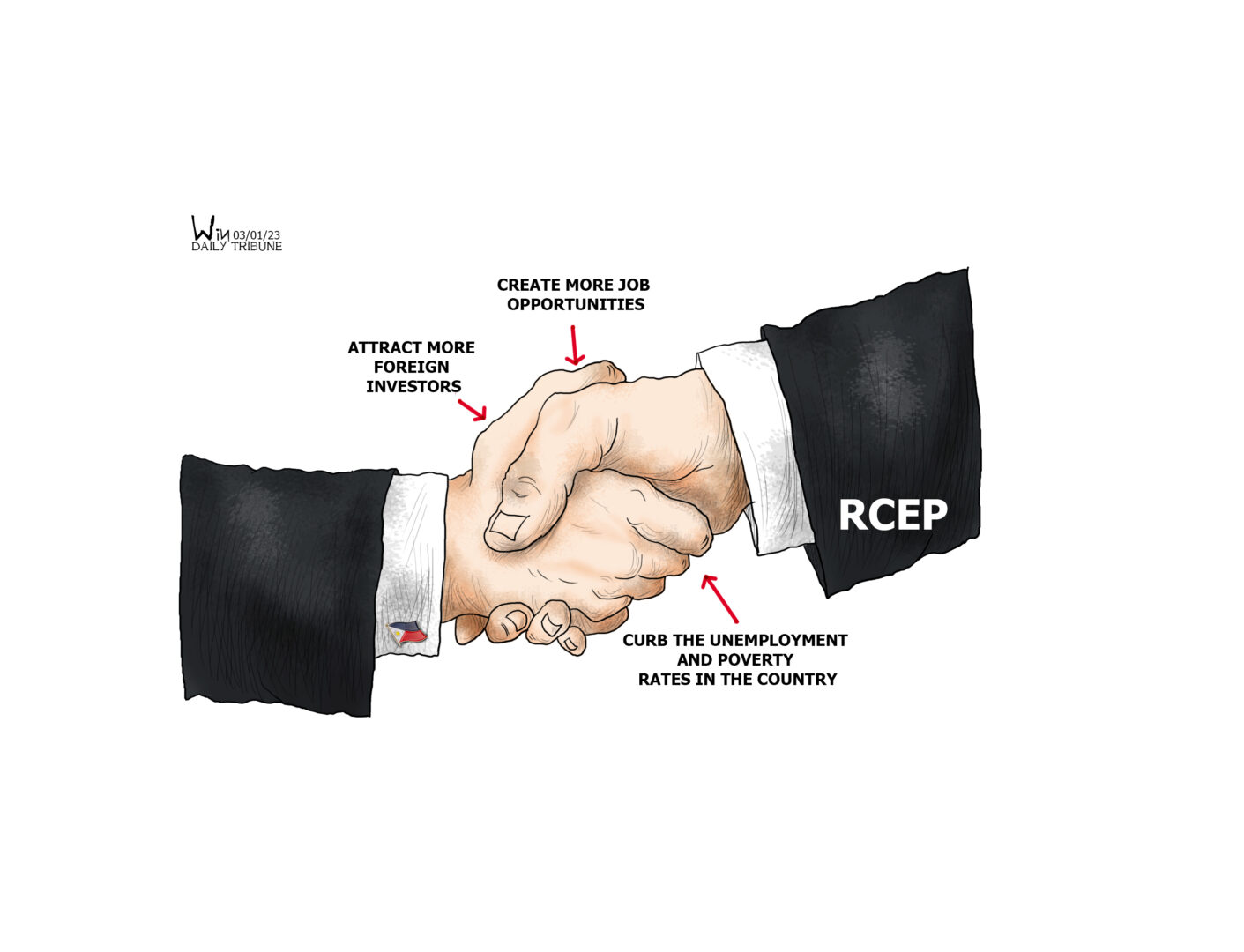The Senate ratified last 22 February the Regional Comprehensive Economic Partnership or RCEP after 20 senators voted in favor of Senate Resolution 485.
In more than a year of interregnum since the signing of the pact, the country’s neighbors had started to make inroads in the trade as members of the world’s biggest trading bloc.
In November 2020, the Philippines became a signatory to the RCEP, and on 1 January 2022, the agreement came into force.
The Constitution, however, requires that the Senate review and agree to international pacts such as the RCEP but it took the Senate a long time to sign the deal, resulting in other nations firming up their foothold in the free trade agreement.
Economic managers frantically pushed for the Senate to sign the deal before the holiday break last year but agriculture lobby groups held up the concurrence, saying the pact would result in a flood of imports.
The Senate held back and waited a year, thus resulting in losses of probably tens of billions of pesos in missed trade opportunities.
Still, the comparative advantage of local products and the skill of Filipino labor are expected to work together in the catch-up period.
The House leadership gave its full support to the Senate move.
“By immediately ratifying the RCEP, the Philippines can soon benefit and take the advantage of this mega-trade deal that could attract more foreign investors, create more job opportunities, and curb the unemployment and poverty rates in the country,” Speaker Ferdinand Martin Romualdez said.
Romualdez was one of the principal authors of Resolution 728, which supported the Senate’s ratification of RCEP.
Economic officials are betting on the e-commerce industry, where the country is strong, to push the country into competing head-to-head with its regional peers.
Trade in the region has gained much significance since the post-pandemic global reopening has seen the Asia-Pacific region as a main growth driver, while the Philippines is considered a leader in terms of economic expansion.
Under RCEP are comprehensive chapters on e-commerce, intellectual property, and financial and telecommunication services that will serve as foundations for attracting more investments.
A likely challenge to economies in the region is the lingering inflation, primarily in the Philippines.
Inflation in the country accelerated to 8.7 percent in January, marking the 10th straight month it exceeded the central bank’s 2 to 4 percent target.
Economists suggested that households save more instead of getting caught up in revenge spending to tame the upswing in prices.
Significantly, President Ferdinand “Bongbong” Marcos Jr. pushed strongly for the ratification of the trade deal to serve as a lynchpin of the country’s recovery efforts.
The Philippines can be a gateway to the swiftly developing ASEAN region since its population is among the youngest in the region.
Economic managers said a stable legal regime, particularly on intellectual property and competition policy, makes the country an ideal manufacturing and research and development hub under RCEP.
With its location in the region, the Philippines also has the advantage of being able to re-export manufactured products to other RCEP nations making use of the preferential tariffs the country enjoys.
RCEP can also speed up the realization of the goals of the Philippine Development Plan through robust business expansions and investments.
The benefit to Filipino workers is the creation of more higher quality and resilient jobs that are key to rapid and sustained poverty reduction.
Socioeconomic Planning Secretary Arsenio Balisacan said that with the strong support of Congress, “the political leadership has shown a commitment to creating an environment conducive to trade and investment as we seek to transform the Philippine economy in the next six years.”
RCEP is expected to cap the reform thrust after the recent implementation of key economic liberalization laws such as the amendments to the Retail Trade Liberalization Act, Foreign Investments Act, Public Service Act, and the Build-Operate-Transfer Law, all of which are expected to facilitate a more open and business-friendly investment climate.
RCEP may not provide a significant advantage for the Philippines in a region of more open trade, but what is crucial is that the country is part of it, thus ensuring that it can play on a level field amid the raft of free trade agreements.
The country’s inherent advantages then ensure that the local economy will stay ahead in the highly competitive race for development.
